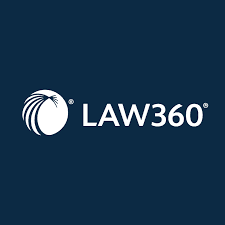Schlanger Law Group In The Media




The first step to dealing with damage caused by inaccurate credit reporting is to pull your credit reports for all three major credit reporting bureaus (Equifax, TransUnion and Experian) It is important to do this with regard to each of the three credit reporting agencies even if you are only aware of an inaccuracy with regard to one agency, as that same inaccuracy may well appear on multiple credit reporting agencies’ reports.
Your credit report will contain not only all or most of the credit card, loans and leases you have entered into, but also the amounts borrowed, your payment history and numerous other details regarding your finances. Current and prospective lenders use these reports in order to decide how risky extending credit to you is likely to be.
Serious inaccuracies on your credit report include listing of accounts that are not yours, failure to note all of your payments, incorrect information about the timeliness of your payments, and incorrect information about the amount of each loan and the amount of all of your payments.
These errors can cause lenders to close credit cards, reduce balance limits, or reject your loan applications (e.g. for auto financing, home loans, credit cards, etc.)
In short, if credit report contains mistakes, your application could be denied; or you could end up paying thousands of dollars more than necessary for credit.
If you have experienced any of these issues, contact us at Schlanger Law Group for a private consultation. We are here for you. Call us now at (212) 500-6114.
In most cases, the first step in dealing with these inaccuracies is to write to the credit reporting agencies to clearly identify the error or errors and request correction. For more information about that process, click here to see our free guide.
If the credit reporting agency does not correct the inaccuracy and you suffer damages as a result of this (e.g. loan denials, balance limit reductions, closed credit cards, etc.), the Fair Credit Reporting Act or “FCRA” provides powerful remedies, including the ability to sue to credit report agency and lender that have failed to fix the error after being notified.
Moreover, where the error on your credit report is caused by the credit reporting agencies’ own faulty policies, there is no requirement that you dispute before bringing suit.
Schlanger Law Group’s practice focuses on credit reporting and identity theft issues. We regularly litigate against Experian, Equifax, Trans Union and other credit reporting agencies, as well as the lenders that provide data to these companies. We represent victims in New York and New Jersey and nationally in cases brought under the Fair Credit Reporting Act.
If you have been denied credit or penalized due to a credit reporting agency’s failure to fix a mistake on your credit report we may be able to help. Contact us at Schlanger Law Group for a private consultation. We are here for you. Call us now at (212) 500-6114.
Schlanger Law Group In The Media





Reach out to Schlanger Law Group for a free consultation, and let’s discuss your case with no upfront fees.
The information on this website is for general information purposes only. Nothing on this site should be taken as legal advice for any individual case or situation.
This information is not intended to create, and receipt or viewing does not constitute, an attorney-client relationship.
ATTORNEY ADVERTISEMENT | Past Results Do Not Guarantee Similar Outcomes in the Future
This site is protected by reCAPTCHA and the Google Privacy Policy and Terms of Service apply.
WEBSITE BY: VISIONTRACTION